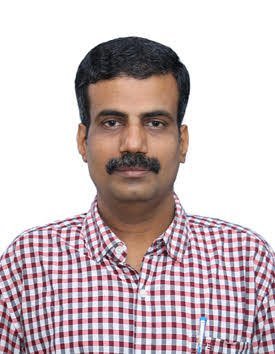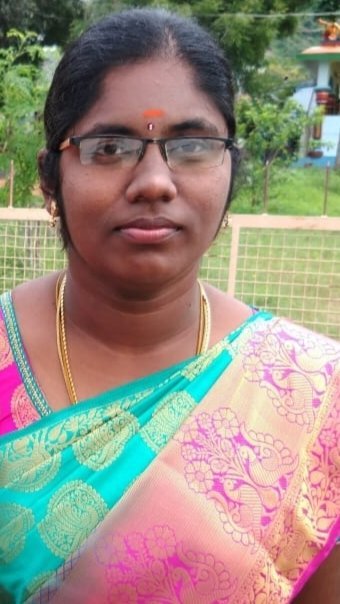B.E. Electronics & Communication Engineering
- Home
- B.E. Electronics & Communication Engineering
Introduction
The Department of Electronic and Communication Engineering was established in the Christian College of Engineering and Technology in 2001–2002, and M.E. Applied Electronics was started in 2011–2012. The Department was started with the objective of imparting high-quality education in the field of Electronics and Communication Engineering. Electronics aim to make the lives of human beings more comfortable. Education in electronic technologies is crucial for the development of a country. This part is shown in the development of skilled labor, the usage of electricity, and the creation of jobs. The abilities that are necessary for this kind of education have been helpful in the practice of entrepreneurship. The gadgets and systems we use every day are improved by electrical and electronic engineers, who are at the forefront of practical technology. We innovate to address the communication, technological, and energy needs of society, from solar energy systems to mobile phones. The modern communication system is thought to be supported by electronics and communication engineering. Currently, expertise in ECE is crucial for modern applications like the Internet of Things (IoT), robotics, and embedded systems. ECE provides a lot of room for innovation and creation, whether it be in the field of robots or microelectronics. Innovation is much easier using software like MATLAB, Xilinx, Mentor Graphics, etc. Designing, reviewing, testing, and updating electronic hardware, software, and components. coordinating with customers, engineers, and other experts to ensure that high-quality projects are executed according to requirements. Aviation and avionics, consumer electronics, electrical plants, manufacturing, distribution, communication and telecommunication, computer applications, radio and television, analytical equipment production, offshore industries, and other fields are all possible careers for electronics and communication engineers.
The department maintains a close interaction with the alumni and often uses their feedback to enhance the course offerings and research infrastructure. The Department is home to several modern laboratories, including those for linear integrated circuits, electronics, microwave and optical fiber, digital communication, VLSI, digital signal processing, Matlab, microprocessors, and embedded systems. The department takes great pleasure in its cutting-edge software, such Cadence. Modern instruments are well-equipped in the laboratories, which are managed by knowledgeable technical support staff. The equipment in the various labs exposes students to real-world knowledge and provides examples of the key ideas in electronic and communication engineering. The department has a library that supports the staff’s and students’ academic and research endeavors. The program has a strong and reliable placement track record, placing students in numerous Core and IT businesses. The department collaborates with academic organizations like IETE to support staff and students’ research endeavors.
Vision
To be of greater service in meeting the National and International rapid advancements, demands and challenges in the arena of Electronics and Communication by providing pioneering engineers of high repute who abide to high and moral ethics and values.
Mission
To train and mould engineering students to face the ever-growing and complex global changes in the Engineering & Communication field, Industry and Organization and subsequently become committed professionals.
Programme Educational Objectives (PEO’s)
Bachelor of Electronic and Communication Engineering curriculum is designed to prepare the graduates having attitude and knowledge to,
PEO1 – To enable graduates to pursue research, or have a successful career in academia or industries associated with Electronics and Communication Engineering, or as entrepreneurs.
PEO2 – To provide students with strong foundational concepts and also advanced techniques and tools in order to enable them to build solutions or systems of varying complexity.
PEO3 – To prepare students to critically analyze existing literature in an area of specialization and ethically develop innovative and research oriented methodologies to solve the problems identified.
Program Specific Outcomes (PSO’s)
Electrical and Communication Engineering Graduates will be able to:
PSO1 – To analyze, design and develop solutions by applying foundational concepts of electronics and communication engineering.
PSO2 – To apply design principles and best practices for developing quality products for scientific and business applications.
PSO3 – To adapt to emerging information and communication technologies (ICT) to innovate ideas and solutions to existing/novel problems.

Dr. P. Tharcis
M.e., Ph.D, MIETE
The Department of Electronics and Communication Engineering was established in the year 2001 with the intake of just 60 students. It has now become one of the most dynamic departments of Christian College of Engineering and Technology. I am really on cloud nine to mention that the department has grown tremendously. The growth in increased number of employees and students depicts the standard and quality of teaching over the period of time. It is due to the strength of experienced and well qualified faculty members who are very committed to teaching. The faculty members refresh themselves with the emerging technologies and keep exploring their research in the field of electronics. Their research experience helps to cultivate the future of our students.
The department outperforms the college with its unique placements and result percentage. The students get placed in reputed MNCs making the department tall and proud. Our students are multitalented in the field of academics as well as co-curricular activities like symposiums, workshops and International conferences. They have also showcased their talents in sports activities. An international knowledge sharing platform is provided to students by organizing international conferences in our college every year.
I believe that my team consisting of ECE students, staff and faculty is an admiration for the emerging colleges. The department has been providing excellent placements that exhibit our academic and extracurricular strengths.
I invite you to the Electronics and Communication Engineering Department if you are looking for an undergraduate or postgraduate program. Our department will help the students to graduate with colors and have a successful career.

Dr. T. Gopalakrishnan
B.E., M.E., Ph.D., MISTE
Hod / Associate professor

Mrs.T.Chitra
M.E., M.I.S.T.E., (Ph. D.,)
Assistant Professor

M.E.,
Assistant Professor

M.E.,
Assistant Professor

M.E.,
Assistant Professor

M.E.,
Assistant Professor

M.E.,
Assistant Professor

M.E.,M.B.A.,MISTE.,(Ph.D.,)
Assistant Professor

M.E.,
Assistant Professor

Mr. P. Vijayakumar
B.E.,
Lab Instructor
- PCB Design
- MATLAB Software
- Low Power Embedded Computing Systems
- XILINX Software
- Biosensor and Bioelectronics
- MATLAB Software
- Recent trends in Nanotechnology
- Low Power Embedded Computing Systems
- System Design using FPGA
- Biosensor and Bioelectronics
- Embedded C with RTOS and IOT
- XILINX Software
- Internet of Things with Raspberry Pi
- Embedded C with RTOS and IOT
- ARDUINO
- System Design using FPGA
- Sensor Technology
- VLSI Design using Cadence Tool
- Speech and Audio signal processing MATLAB
- Internet of Things with Raspberry Pi
- Wireless Communication Protocol
- ARDUINO
- Remote Sensing
The department of ECE has various laboratories equipped with the latest hardwares and softwares. The theory lessons that were taught in the classes were complemented by the practical experiments done in the laboratories. The department of ECE boasts of having over 8 laboratories.
1. MICROPROCESSOR AND MICROCONTROLLER LAB
Microprocessor Lab is equipped with 8085, 8086, 8051 microprocessor & microcontroller kits. Interfacing circuits are ADC/DAC,8255,8253,8279, Digital clock interface & Printer Interface card with real world applications are also available in the Laboratory. Software available include driver software, assemblers and disassemblers for microprocessors & microcontrollers. In addition,Traffic Light Controller, DC motor controller,stepper motor controller devices are also available.
2. OPTICAL AND MICROWAVE LAB
Optical and Microwave Lab was established in the year of 2003 and it is well equipped with various components, Analog/digital optical kits and microwave test benches. The various equipments are trainer kit for carrying out LED &PIN diode ,digital multimeter,optical power meter, Numerical aperture kit,Test bench X-band ,Directional coupler ,Horn antenna, VSWR,SWR ,Klystron power supply-plane & H- plane,digital /analog oscilloscope, Spectrum analyzer and all other accessories. This lab has also different trainer kit.The lab has been well established with fully air-conditioned facilities. The lab can accommodate 30 students per batch.
3. EMBEDDED LAB
Embedded laboratory houses all the necessary hardwares, softwares & accessories to conduct Embedded lab, to do projects & researches related to embedded field. The goal is to produce innovative & efficient technocrats in this field. It helps to design a system or process to meet desired needs within realistic constraints.
4. DIGITAL LAB
Digital Circuit Laboratory is a well furnished laboratory equipped with Digital Electronic Instruments on par with the industry. The laboratory consists of instruments mainly related to digital electronics and analog integrated circuits technology. Some of the major components available are digital integrated circuits trainers, cathode ray oscilloscopes, function generators, integrated circuits testers, multi-meters, Regulated power supplies etc.,This laboratory is one among the core practical oriented learning facilities in the department which enables the students to come up with innovative digital and analog electronic design.
5. ELECTRONICS AND COMMUNICATION LAB
Electronics lab was established in the year 2001. It is equipped with CROs upto 30 MHz, Function Generators up to 20 MHz, Power supplies and various ranges of Digital meters for performing experiments. In addition, LCR and Components tester are also available. This Laboratory provides the students with ample exposure to the principles of AM, FM Modulators and Detectors. Digital principles of PCM, PPM, PAM and FSK/ PSK Modulators and Detectors, Delta Modulators are illustrated to the students through practical experiments.
6. DIGITAL SIGNAL PROCESSING LAB
Digital Signal Processing Laboratory is outfitted with TMS320C6748 Processor, TMS320C5410/16 Processor and Micro-81-2181 Trainer kit with Vi Debugger software. In addition Matlab 7.1 version software with simulink and signal processing tool boxes are available in the laboratory. Equipments like 1MHz and 10MHz Function Generators, 25MHz CRO and 31 systems are also available in the laboratory. The main objective of this lab is to familiarize the students with basic signal processing and to understand the hardware-software interface.
7. ELECTRONICS SYSTEM DESIGN LAB
Electronics System Design Laboratory is equipped with Universal VLSI Trainer, Universal PIC Embedded Trainer, Model Train Board, Elevator Simulator Interface, Spartan 6 Project card, Flash Memory Interface Board, Flash Controller, FPGA Programming Kit, AT91 SAM 9263 Development Kit, ARM 7 LPC 2148 Starter Kit, Embedded Trainer Kit with Arm Board, 8086 Microprocessor LCD Kit, 8051 Microcontroller Kit, Zigbee Development Kit, Embedded Trainer Kit for Wireless Communications. In addition, the laboratory is accessible with software like Xilinx 9.1i / 9.2 / 13.1i,Mat lab 7.1 version software with simulink and signal processing tool boxes, Vi- AT91SAM9 software, Keil software, Model Train software, IAR 8.30 Evaluation and Cadence software Tool. Equipments like 1MHz and 10MHz Function Generators, 25MHz CRO and 31 systems also exist in the laboratory. The main objective of this lab is to familiarize the students with different types of programming technologies and logic devices.
8. RESEARCH LAB
Research Laboratory is equipped with Actel Development Kit, VLSI-400 Gate Spartans Trainer, Student Project Trainer VTU Trainer, FPGA Programming Kit, Universal PIC Embedded Trainer and Embedded Trainer Kit with Arm Board. In addition, the laboratory has softwares like Xilinx 9.1i / 9.2 / 13.1i,Mat lab 7.1 version software with simulink and signal processing tool boxes, Vi- AT91SAM9 software, Keil software, Model Train software, IAR 8.30 Evaluation and Cadence software Tool. Equipments like 1MHz and 10MHz Function Generators, 25MHz CRO and 31 systems also exist in the laboratory.
A five-day Internship Training Program on "Embedded Systems" in collaboration with Shree Technologies, A Franchisee of Prolific Systems and Technologies P Ltd , Coimbatore
MoU with Shree Technologies, A Franchisee of Prolific Systems and Technologies P Ltd , Coimbatore



